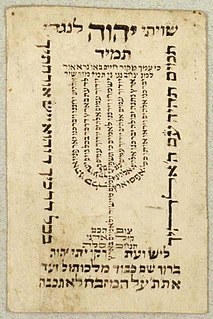
Inayat Khan Rehmat Khan was a professor of musicology, singer, exponent of the saraswati vina, poet, philosopher, and pioneer of the transmission of Sufism in the West. At the urging of his students, and on the basis of his ancestral Sufi tradition and four-fold training and authorization at the hands of Sayyid Abu Hashim Madani of Hyderabad, he established an order of Sufism in London in 1914. By the time of his death in 1927, centers had been established throughout Europe and North America, and multiple volumes of his teachings had seen publication.

Vilayat Inayat Khan was a teacher of meditation and of the traditions of the East Indian Chishti Sufi sect of Sufism. His teaching derived from the tradition of his father, Inayat Khan, founder of The Sufi Order in the West, in a form tailored to the needs of Western seekers. One of his sisters was Noor Inayat Khan GC MBE. He taught in the tradition of universal Sufism, which views all religions as rays of light from the same sun. His parents met at the New York City ashram of American yogi, Pierre Bernard, half-brother of his mother Pirani Ameena Begum.

The 'Hail Mary' is a traditional Christian prayer addressing Mary, the mother of Jesus. The prayer is based on two biblical episodes featured in the Gospel of Luke: the Angel Gabriel's visit to Mary, and Mary's subsequent visit to Elisabeth, the mother of John the Baptist. The Hail Mary is a prayer of praise for and of petition to Mary, regarded as the Theotokos. Since the 16th century, the version of the prayer used in the Catholic Church closes with an appeal for her intercession. The prayer takes different forms in various traditions, and has often been set to music.

The Amidah, also called the Shemoneh Esreh, is the central prayer of the Jewish liturgy. Observant Jews recite the Amidah at each of three daily prayer services in a typical weekday: morning (Shacharit), afternoon (Mincha), and evening (Ma'ariv). On Shabbat, Rosh Chodesh, and Jewish festivals, a fourth Amidah (Mussaf) is recited after the morning Torah reading, and once per year a fifth Amidah (Ne'ilah) is recited, at sunset on Yom Kippur. Due to its importance, in rabbinic literature it is simply called hatefila. According to legend, the prayer was composed by the Rabbis of the Anshei Knesset HaGedolah. Accordingly, in Judaism, to recite the Amidah is a mitzvah de-rabbanan.

The epiclesis refers to the invocation of one or several gods. In ancient Greek religion, the epiclesis was the epithet used as the surname given to a deity in religious contexts. The term was borrowed into the Christian tradition, where it designates the part of the Anaphora by which the priest invokes the Holy Spirit upon the Eucharistic bread and wine in some Christian churches. In most Eastern Christian traditions, the Epiclesis comes after the Anamnesis ; in the Western Rite it usually precedes. In the historic practice of the Western Christian Churches, the consecration is effected at the Words of Institution though during the rise of the Liturgical Movement, many denominatons introduced an explicit epiclesis in their liturgies.

An invocation may take the form of:

The Dances of Universal Peace (DUP) are a spiritual practice that employs singing and dancing the sacred phrases of the world's religions. Their intention is to raise consciousness and promote peace between diverse religions according to one stated goal. The DUP are of North American Sufic origin. They combine chants from many world faiths with dancing, whirling, and a variety of movement with singing.

Samuel L. Lewis also known as Murshid Samuel Lewis and Sufi Ahmed Murad Chisti was an American mystic and horticultural scientist who founded what became the Sufi Ruhaniat International, a branch of the Chishtia Sufi lineage. After a lifetime of spiritual study with teachers East and West, primarily Inayat Khan and Nyogen Senzaki, Lewis was recognized simultaneously as a Zen master and Sufi murshid by Eastern representatives of the two traditions. He also co-founded the Christian mystical order called the Holy Order of Mans. His early interest in international seed exchange and organic agriculture also established him as one of the pioneers of green spirituality. His most enduring legacy may be the creation of the Dances of Universal Peace, an early interspiritual practice that has spread around the world in the 50 years since his passing.

The Ardās is a set prayer in Sikhism. It is a part of worship service in a Gurdwara, daily rituals such as the opening the Guru Granth Sahib for prakash or closing it for sukhasan in larger Gurdwaras, closing of congregational worship in smaller Gurdwaras, rites-of-passages such as with the naming of child or the cremation of a loved one, daily prayer by devout Sikhs and any significant Sikh ceremonies.
Litany, in Christian worship and some forms of Judaic worship, is a form of prayer used in services and processions, and consisting of a number of petitions. The word comes through Latin litania from Ancient Greek λιτανεία (litaneía), which in turn comes from λιτή (litḗ), meaning "supplication".
In Christian liturgical worship, preces are short petitions that are said or sung as versicles and responses by the officiant and congregation respectively. This form of prayer is one of the oldest in Christianity, finding its source in the pre-Christian Hebrew prayers of the Psalms in temple worship.

Psalm 67 is the 67th psalm of the Book of Psalms, beginning in English in the King James Version: "God be merciful unto us, and bless us; and cause his face to shine upon us". In Latin, it is known as "Deus misereatur". In the slightly different numbering system of the Greek Septuagint version of the Bible, and in the Latin Vulgate, this psalm is Psalm 66. Its theme is a prayer for God's mercy, blessing and light.

Shaikh-ul-Mashaik Pyaromir Maheboob Khan (1887–1948) was born in Baroda, India. An Indian classical musician and younger brother of Inayat Khan, he became the representative of the International Sufi Movement on the latter's death in 1927.

The Inayati Order (Inayatiyya), is an international organization dedicated to spreading the Sufi teachings of Inayat Khan, a musician and mystic who first introduced Sufism to the modern Western world in 1910. The Inayati Order operates internationally through a network of centers, and offers a number of programs and activities. It is led by Zia Inayat Khan, grandson of Inayat Khan.

Kashf "unveiling" is a Sufi concept dealing with knowledge of the heart rather than of the intellect. Kashf describes the state of experiencing a personal divine revelation after ascending through spiritual struggles, and uncovering the heart in order to allow divine truths to pour into it. Kashf is etymologically related to mukashafa “disclosure”/ “divine irradiation of the essence”, which connotes "gain[ing] familiarity with things unseen behind the veils". For those who have purified their hearts, and who come to know the Divine Names and Attributes to the fullest of their individual capacities, the veils in front of the purely spiritual realms are opened slightly, and they begin to gain familiarity with the unseen. In Sufism, an even further revelatory capacity exists by which the Divine mysteries become readily apparent to the seeker through the light of knowledge of God. This is called tajalli "manifestation".
The Universal Worship Service was created by Inayat Khan as a prayer service invoking the One Being through the world's major faith traditions.

Pirani Ameena Begum was the wife of Sufi Master Inayat Khan and the mother of their four children: World War II spy Noor-un-Nisa (1914-1944), Vilayat (1916-2004), Hidayat (1917-2016) and Khair-un-Nisa (Claire) (1919-2011).
The Sufi Ruhaniat International (SRI) is a stream of Universal Sufism and draws inspiration from traditions of Sufism within and beyond historic Islam. SRI is an initiatic order within the lineage of Inayat Khan (Inayati-Chishtiyya). Sufi Ahmed Murad Chisti, a disciple of Inayat Khan, formally founded the order in 1970. There are centers throughout the United States, Belgium, Canada, the Netherlands and the United Kingdom.
Shahabuddin David Less is a meditation teacher, author, American mystic, and Senior Teacher (Murshid) in the Inayati Order. He is the founder and spiritual director of Rising Tide International, an interfaith spiritual community in Sarasota, Florida; co-founder of The Abrahamic Reunion, multi-faith group of spiritual and religious leaders working together as peacemakers in Israel and Palestine; and serves as International Head of The Universal Worship, a universal religion that honors and invokes all the world's religious and spiritual contributions to humanity.
Western Sufism, sometimes identified with Universal Sufism, Neo-Sufism, and Global Sufism, consists of a spectrum of Western European and North American manifestations and adaptations of Sufism, the mystical dimension of Islam, established in the twentieth century.















